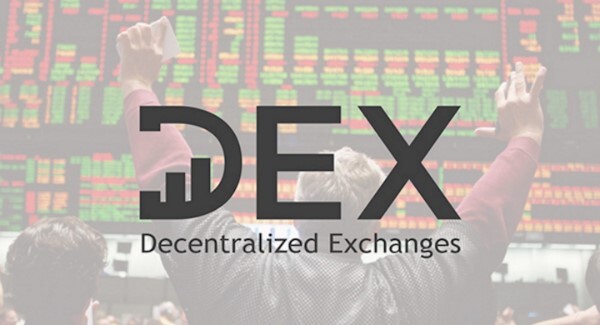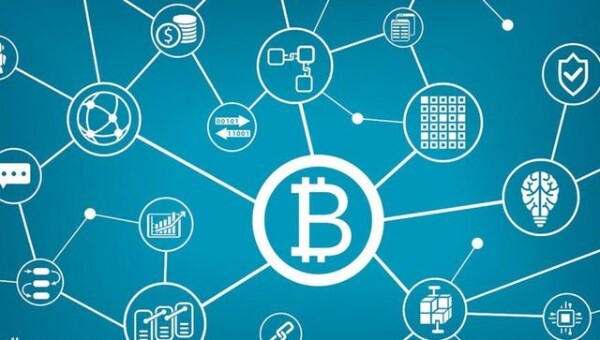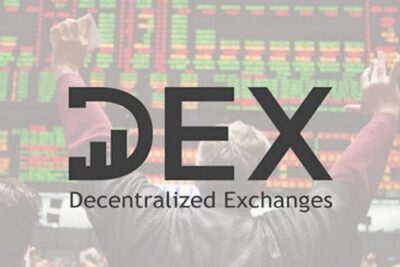

Cryptocurrency Explained: What Is A DEX? Top Best DEX On Market
25 March 2022
What is a DEX? You’re probably familiar with crypto exchanges. Start trading cryptocurrencies now by entering your email address and creating a secure password. That’s what decentralized exchanges (DEXs) are like, but without the sign-up headache. The transaction takes place only between the wallets of the two parties involved, with little to no involvement from a third party.
DEXs might be more difficult to use and may not always offer the assets you seek. However, if the technology and interest expand, they may become essential components in the cryptocurrency world.
Exchanges have played an important role in connecting Cryptocurrency buyers and sellers from the beginning of the cryptocurrency’s existence. We’d have considerably less liquidity and no means to settle on a price for assets if these forums didn’t draw a worldwide user base.
Historically, centralized players have dominated. With the quickly increasing technology stack, a rising variety of decentralized trading tools have arisen. In this essay, bePAY‘ll explore what is a DEX? without the need for a third-party middleman.
What Is A DEX?
Apps based on the blockchain that facilitates large-scale cryptocurrency trading between multiple users are known as a crypto decentralized exchange. So instead of serving as a middleman between buyers and sellers, they use fully automated algorithms.
DEXs employ smart contracts to power their algorithms. They are bits of code that are created on top of blockchain networks like Ethereum, and when given particular inputs, they produce a variety of different outcomes.
It is the goal of a DEX to “disintermediation,” which means cutting out the middlemen so that ordinary people may do commerce with each other directly. Users’ crypto assets are not in the hands of a DEX. As a result, consumers have immediate access to all of their assets in their wallets.

What is a DEX?
According to research by global accounting KPMG, the major crypto DEXs have started to threaten some of the largest centralized exchanges (CEXs) in terms of trade volume by late 2021. DEXs are the largest decentralized enterprises, much as exchanges are.
What Does A DEX Do?
Decentralized exchanges, unlike centralized exchanges, do not allow for the conversion of fiat for cryptocurrency tokens. Using CEX, it’s possible to swap fiat currency for a cryptocurrency (and the other way around) as well as crypto-crypto pairings, such as exchanging part of your Bitcoin for ETH. There are several sophisticated options available, including margin trades and limit orders.
On the other hand, there are several kinds of DEX, but they all employ smart contracts to execute orders on-chain, so users never have to give up control of their cash to a centralized exchange. DEXs only let you swap a kind of cryptocurrency for cryptocurrency.
An on-chain order book is the most common kind of DEX. The same mechanism is used by stock exchanges such as Nasdaq. In a nutshell, this implies that all transactions on the DEX are recorded on the underlying blockchain. You don’t have to depend on a third party to serve as a middleman between you and the other party in each trade since all transactions are completely transparent.

What does a DEX do?
This method, on the other hand, is time- and money-consuming. Fees are typically necessary to encourage users to contribute processing power to the blockchain because of the necessity for every node to record every transaction. The Stellar and Binance DEXs are two examples of DEX of on-chain order book structures.
Besides this, there are also referred to as “off-chain DEXs,” where the operation is more centralized than in an on-chain DEX. An alternative to posting every order to the blockchain is that they are housed elsewhere. This brings the exchange model closer to the one shown above.
On top of that, there are complicated algorithms called Automated Market Makers, which remove middlemen from online exchanges. The front-end user experience is typically fairly fluid, despite the fact that the back-end mathematics may be rather hard. Trust Wallet is an excellent illustration of this.
What Are DEXs Pros And Cons?
DEXs Pros
The fact that KYC/AML procedures are simplified in DEXs is a significant benefit. There is no need to give evidence of identity or address to access DEXs since they are effectively permissionless environments. Privacy and data-sharing concerns are addressed, as well as accessibility challenges for certain users, with this change. A cryptocurrency wallet is all you need to conduct a transaction, and this convenience is a big selling point for some.
In addition, there is no danger of a counterparty. Hacking and other types of external meddling are not a problem since DEXs do not keep clients’ money. Many crypto users are still haunted by the 2014 collapse of Mt. Gox, and as a result, DEXs offer the promise of a more safe solution.
Finally, many people are drawn to DEXs because of the availability of unlisted tokens. DEXs are a haven for blockchain and crypto enthusiasts since they host a variety of specialized tokens that aren’t available on centralized exchanges. Uniswap, a well-known DEX, offers more than 5,000 cryptocurrencies for trading.

DEXs pros and cons
>> You may also like: What is UniSwap and how does it work?
DEXs Cons
DEXs aren’t exactly user-friendly, as you’ve probably gathered by now. If you’re a novice in the cryptocurrency world, you’re going to have a hard time adapting to any decentralized exchange.
In addition to this, there are concerns about the volume of trade and the liquidity of different digital assets. Some of the tokens accessible on DEXs are very specialized, which necessitates a lack of liquidity. A transaction may take longer than expected and pricing might change dramatically in either way.
When the network is congested or if you’re utilizing an on-chain order book, there may be limited processing power available to fulfill your transaction, therefore costs on DEXs may be greater than on other exchanges.
What Is The Best DEX?
Consider the top five examples of DEX exchanges in this article. Among them:
- Curve (CRV)
- Uniswap (UNI)
- Pancakeswap (CAKE)
- SushiSwap (SUSHI)
- Balancer (BAL)
Curve (CRV)
Using Ethereum as its foundation, Curve has built a decentralized liquidity pool. It is intended for the following purposes in particular:
- Liquidity providers earn fees by providing a highly efficient
- Low-risk trading service with little slippage.
In trading, slippage refers to the price discrepancy between the expected and actual price of a deal. The Curve Decentralized Autonomous Organization sets the fees and all other settings (DAO). All of the pools have a 0.04% service charge. Liquidity providers get half of the charge, and the membership of the DAO gets the other half.

Curve
Uniswap (UNI)
Uniswap is an Ethereum decentralized protocol for providing automatic liquidity. “Spreads” are a key issue for illiquid assets traded on normal markets. By making everyone a market maker, Uniswap overcomes this problem. Uniswap has significant order slippage due to the fact that the price paid rises in direct proportion to the size of the order.
Pancakeswap (CAKE)
On the Binance Smart Chain, PancakeSwap is an automated market maker and yield farm (BSC). Because it operates on BSC rather than SushiSwap, PancakeSwap offers cheaper and quicker transactions than SushiSwap. Yield farming, lotteries, and initial farm offerings are all available through PancakeSwap.
>> Read also: What is PancakeSwap and how does it work?
SushiSwap (SUSHI)
Automated liquidity is provided via SushiSwap, an Ethereum-based decentralized technology. It is a decentralized loan market and an exchange. Staking derivatives and yield instruments are also supported. While both Yearn.finance and SushiSwap have announced a merger in the latter half of 2020, they will continue to operate independently.

SushiSwap
Balancer (BAL)
Automated portfolio management and trading platform for non-custodial accounts, Balancer are called. A portfolio manager is compensated by the investor in a traditional index fund for rebalancing the portfolio. The investor in Balancer receives fees from traders who use arbitrage opportunities to rebalance their portfolios.
What Is DEX Vs CEX?
In comparison here are some main differences what is DEX vs CEX?
| DEX | CEX | |
| Definition | DEX is the next evolutionary phase in CEX’s development. As a result, there is no central authority in charge of the DEX system; instead, every trade or transaction is handled by a smart contract. Transactions are faster and less expensive with smart contacts than with CEX. | The most popular cryptocurrency trading platform, Centralized Exchanges, serves as a meeting place where users may trade their crypto. CEX was created by a third-party corporation to hold assets, supervise exchanges, and levy exchange fees.
CEX used an order book to facilitate the exchange procedure. Based on current buy and sell orders, it decides the price of a given cryptocurrency. |
| Advantages | High security from hacking | CEX has a large volume of trade and a high level of liquidity |
| A low-cost charge | The exchanging of fiat currency for cryptocurrency and vice versa | |
| There is no third-party fraud | A high degree of usability | |
| Provides a wide range of cryptocurrencies to choose from | An easy-to-use interface | |
| DeFi and NFT integration | The deal is completed on schedule | |
| It’s impossible for the government to shut it down | ||
| Disadvantages | Lack of liquidity compared to the CEX | Possibility of hacking |
| Lack of features | Face to government regulation |
Some FAQs About DEXs
What Is The Total Number Of DEX Exchanges?
As of June 2021, there will be over 100 DEX exchanges, according to CoinGecko. Much smaller or developing DEXs aren’t mentioned on websites that track trading activity, therefore the actual number is likely significantly larger than the stated figure.
Is It Legal To Have A DEX?
The answer is yes, DEXs are lawful like CEXs. DEXs are governed by the same legislation in all countries.
Is Decentralized Trading Safe?
Yes, DEXs are generally thought to be safe by the general public. Because each trader has full control over their own private keys, there is almost no possibility of a large-scale security compromise resulting in the loss of cash. However, there are a few security concerns with DEXs. Hacks like phishing and rug pulls are becoming more widespread.
Can DEX Be Hacked?
The answer is yes, DEXs utilize smart contracts that include vulnerabilities that allow hackers to perform complex attacks.

Some frequently asked questions about DEXs
Closing Thoughts
Every attempt to simplify the user experience and construct more powerful trading venues has been iterated over the years by several decentralized exchanges. Finally, the concept seems to be in line with the attitude of self-sovereignty: consumers don’t need to trust a third party.
An important concern for DEXs is finding a way to optimize your trading profits while retaining security, convenience, and anonymity at the same time. In spite of this, it is vital to recognize that DEXs are not a silver bullet that can cure all of the issues that centralized exchanges face.
Trading DEXs has its own unique set of challenges, and traders need to be aware of these while preparing ahead. Since DeFi is continually improving itself, it’s possible that the current drawbacks of DEXs will be eliminated in the future.
Ethereum-based DEXs have witnessed a tremendous increase in usage with the launch of DeFi. If the current trend continues, the technology sector as a whole is expected to see increasing innovation.

What Is A DApp – The Gateway To Interact Decentralized
22 March 2022
What Is SegWit? And What Does It Solve For Bitcoin
25 March 2022









